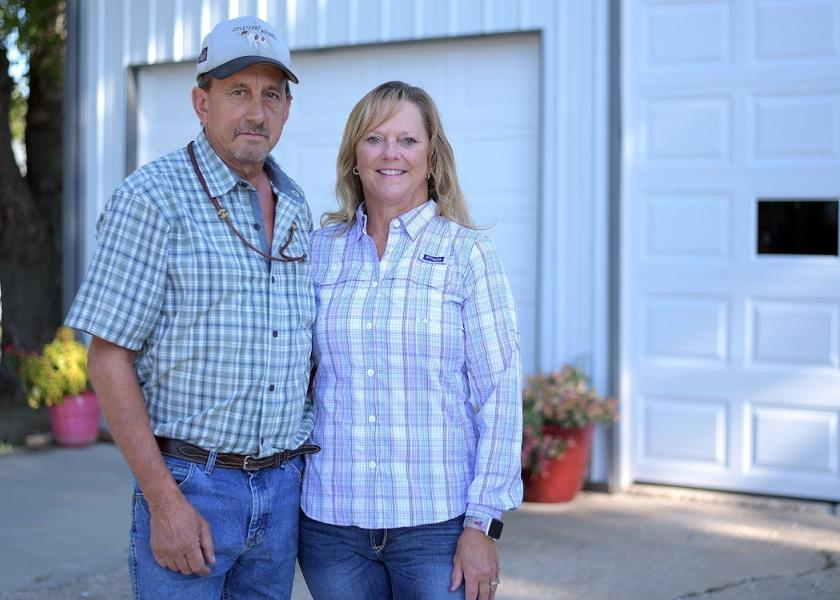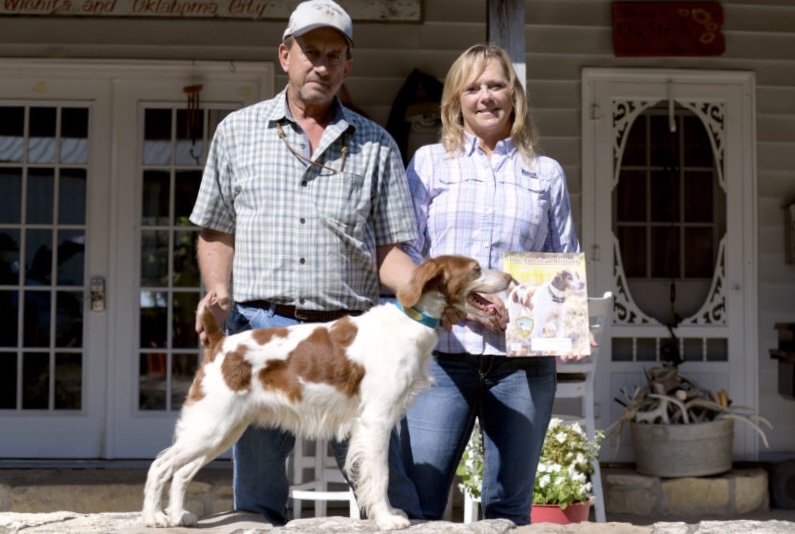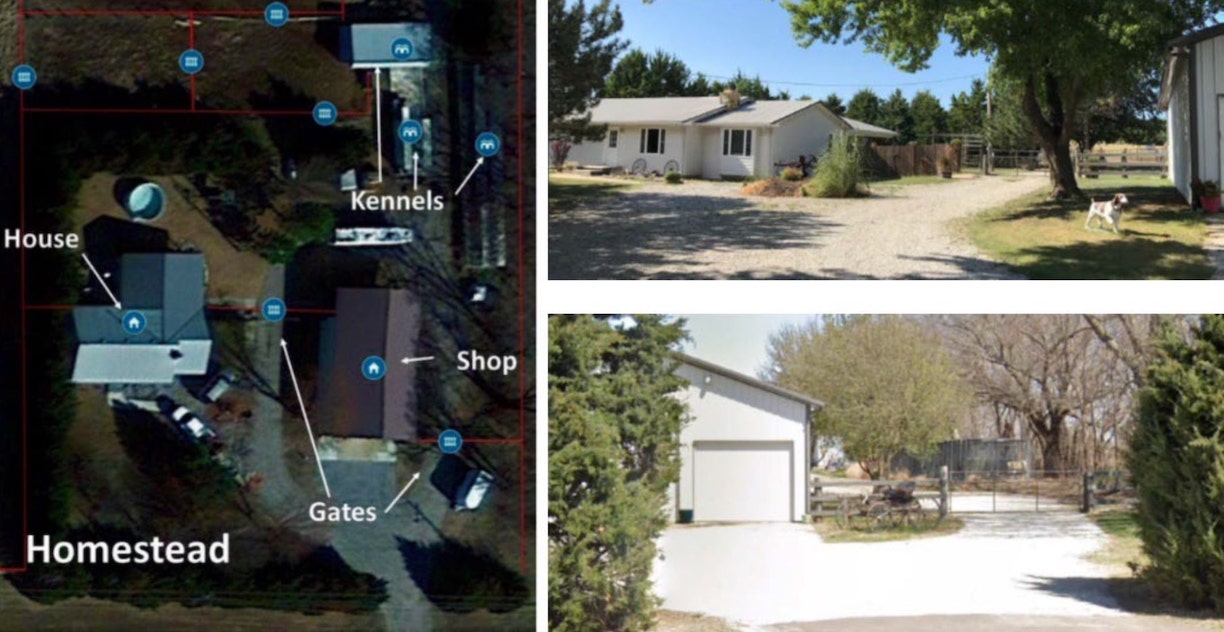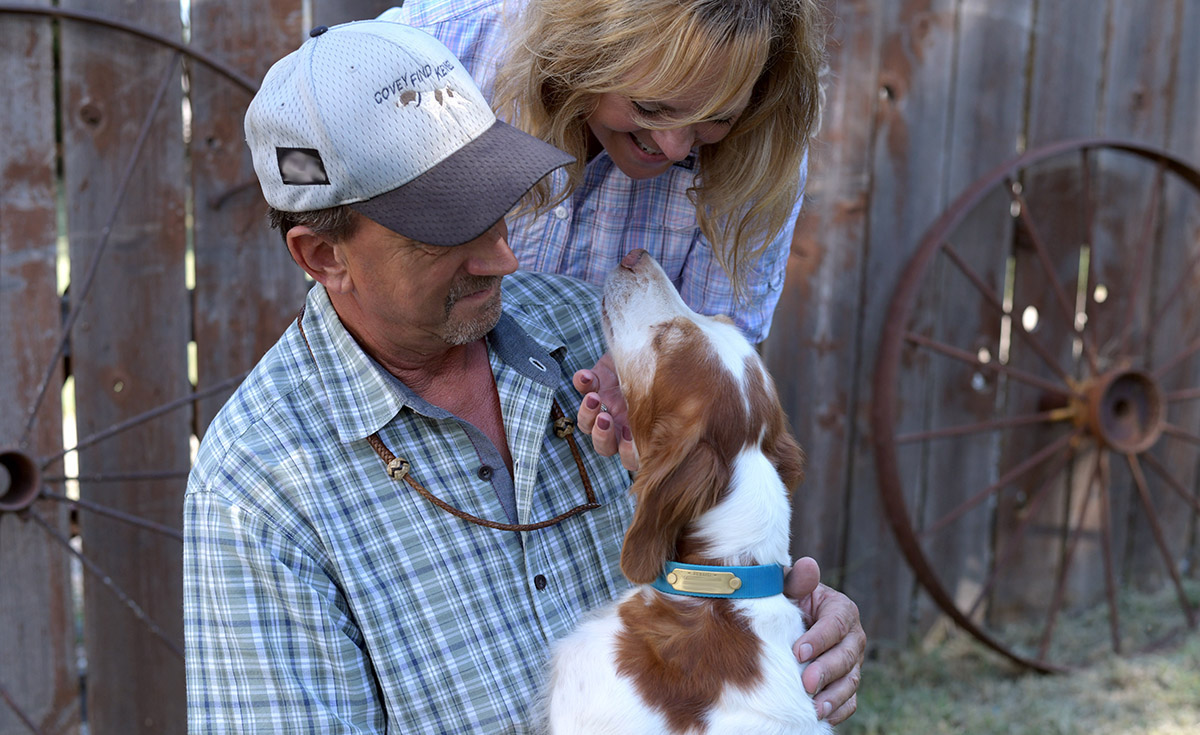Property Owner Fights Government Over Warrantless Searches On Homestead

In the name of regulation, does government have the power to override the Fourth Amendment’s search and seizure protection? Indeed, contend Kansas state officials. Absolutely not, counters property and business owner Scott Johnson. “The government thinks it isn’t accountable, but we’re taking a stand.”
At stake is Johnson’s livelihood. He lives where he works. In 2020, when the Kansas Department of Agriculture (KDA) demanded no-warrant access to Johnson’s property under penalty of repeated fines and loss of business license, Johnson fought back. Presently locked in a court battle with KDA, Johnson is resolute: “When average people find out what the government is doing, they’re disgusted. I’m fighting for what’s right.”
Breaching the Bill
At the edge of the Flint Hills outside Winfield, Kan., roughly one hour southeast of Wichita, Johnson operates nationally-recognized Covey Find Kennel (CFK), jointly owned with his wife, Harlene Hoyt. Johnson trains prize-winning bird dogs and he is one of the top handlers in the United States. His house, shop, and kennels sit together on a homestead in rural Cowley County, adjacent to abundant pastureland and wheat fields. CFK is a shipshape operation, clean as a whistle with an extensive list of accolades and awards as testament.
In Kansas, bird dog training is a pervasively regulated industry—lumped in with commercial fishing, animal breeding, horse racing, liquor, firearms, and mining. Operation of a bird dog training business requires a state-issued license, and all applicants must waive Fourth Amendment rights. No waiver; no license. No license; no business.
Licensees must agree to warrantless, unannounced inspections of premises and facilities, and must allow entry within 30 minutes of an inspector’s arrival—anywhere from 7 a.m. to 7 p.m., Monday to Friday.

In 2018, the Kansas Legislature tossed out the discretion to provide notice before an inspection: “Notice shall not be given to any person prior to inspection.” Failure to meet the 30-minute window results in a $200 penalty for a business owner. Additionally, if an owner denies property access to the state, a potential $1,000 penalty is in the cards, along with educational courses on animal treatment and a shutdown of the business.
In January 2020, while Johnson was training dogs away from CFK, a KDA inspector arrived at his homestead for a warrantless search. Unable to reach Johnson, the inspector called Harlene Hoyt, seeking entry into CFK, and warned of a fine if Hoyt didn’t arrive to allow access within 20 minutes. Hoyt was at work in Winfield where she manages a critical care clinic at a hospital and supervises 30 employees.

Juggling responsibilities, Hoyt rushed home and allowed inspectors onto the home property, avoiding a fine. KDA’s insistence on warrantless searches was a bridge too far for Johnson. He viewed the state’s action as a breach of the Bill of Rights.
“I’ve long asked the question of why the bureaucracy considers bird dog training as a pervasively regulated industry,” Johnson says. “We can’t get a license without the government taking our rights? Now we’re forced to let them search our home property? We face financial penalties and shutdowns if we don’t comply? We can’t travel together 30 minutes beyond our property without risking whether the inspector shows up? The public can’t believe what we’re dealing with.”
“No Connection to Rural Life”
Represented by the Kansas Justice Institute, Johnson launched a lawsuit against KDA in October 2022. Johnson contends KDA’s warrantless search policy violates the Fourth Amendment and the fundamental right to freedom of movement. Also, the lawsuit challenges the inclusion of dog training as a pervasively regulated industry. Johnson’s suit does not challenge Kansas law concerning breeders, shelters, animal rescues, pet stores, research facilities or distributors.
(Citing ongoing litigation, KDA declined a Farm Journal interview request.)
“The state’s restrictions on us are not reasonable or constitutional,” Johnson notes. “I work in the field or sometimes out of state and my wife works elsewhere—we can’t always get home in 30 minutes. We live and train dogs in the same rural place. I provide a quality service at a quality facility, and I’d be out of business if I provided anything less.”
Sam MacRoberts, general counsel and litigation director of Kansas Justice Institute, echoes Johnson’s concerns. “Warrantless searches put Scott’s livelihood at risk. There is an automatic penalty of $200 the first time, and if it happens three times, the result could be license revocation.”
“Scott is forced to either comply to warrantless searches or have his livelihood ruined,” MacRoberts explains. “The government says, ‘Hand over your search rights or you can’t get a license.’ That means you can’t earn a living unless you waive your rights. That is unconstitutional because the government is forcing someone to give up rights in exchange for a license.”
Compounding the overreach, according to MacRoberts, is a government-mandated restriction on travel. “If Scott is not on his property within 30 minutes of when a search is to begin, it’s an automatic penalty. Because Scott travels around the Midwest and beyond, he can’t leave with Harlene or he’ll risk penalties and closure of his business.”
“We filed Scott’s case in Wichita, but if he and Harlene attend court together in Wichita, they risk getting an automatic $200 penalty,” MacRoberts adds. “What if they go to court and a state inspector shows up at their home business? The state’s search regime is unreasonable.”
Depending on circumstances, surprise warrantless searches are conducted every three months to 24 months. When Johnson is on the road and Hoyt is traveling with him or under a heavy hospital work schedule, Johnson hires independent contractors to feed, water, clean, and care for the dogs. However, as stated in Johnson’s complaint: “The role of these contractors is limited. They do not have access to all of CFK’s records or the entire property, and they do not have the authority to represent Mr. Johnson or CFK.”
KDA policy—not the inspectors—are the problem, insists second-generation trainer Johnson. “I don’t blame the inspectors because they’re just doing their job. But their bosses are unelected officials with no connection to rural life. If I was actually doing anything wrong I’d have gone out of business a long time ago.”
Home and Castle
On May 6, 2023, Johnson’s civil and property rights lawsuit against KDA was denied in federal court. Johnson appealed to the US Court of Appeals for the Tenth Circuit.

“Ultimately, Scott is going to be vindicated,” MacRoberts says, “because what the government is doing violates the Fourth Amendment and is unconstitutional.”
“Your home in your castle,” MacRoberts adds. “Government can’t come in just because it wants to.”
The crux of the case narrows to simple constitutional freedoms, Johnson emphasizes. “One, we want to be free to come and go on our property without penalty. Two, we want people to know the government thinks it can intrude on home and property, without accountability, anytime it wants. We want people to know what we’re facing from the government is not reasonable.”
For more from Chris Bennett (cbennett@farmjournal.com 662-592-1106) see:
Priceless Pistol Found After Decades Lost in Farmhouse Attic
Cottonmouth Farmer: The Insane Tale of a Buck-Wild Scheme to Corner the Snake Venom Market
Tractorcade: How an Epic Convoy and Legendary Farmer Army Shook Washington, D.C.
Bagging the Tomato King: The Insane Hunt for Agriculture’s Wildest Con Man
Young Farmer uses YouTube and Video Games to Buy $1.8M Land
While America Slept, China Stole the Farm
Bizarre Mystery of Mummified Coon Dog Solved After 40 Years
The Arrowhead whisperer: Stunning Indian Artifact Collection Found on Farmland
Fleecing the Farm: How a Fake Crop Fueled a Bizarre $25 Million Ag Scam
Skeleton In the Walls: Mysterious Arkansas Farmhouse Hides Civil War History
US Farming Loses the King of Combines
Ghost in the House: A Forgotten American Farming Tragedy
Rat Hunting with the Dogs of War, Farming's Greatest Show on Legs
Evil Grain: The Wild Tale of History’s Biggest Crop Insurance Scam







